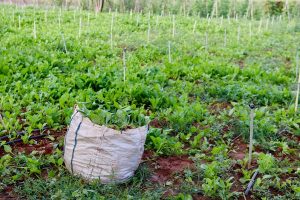City Sprouts: The Sprouting Agricultural Community in London
Table of Contents
Agricultural Community in London

In the heart of the agricultural community in London amidst the hustle and bustle of city life, a vibrant and supportive agriculture community is sprouting. From rooftop gardens to community allotments, Londoners are embracing urban farming as a means of reconnecting with nature, promoting sustainability, and fostering community bonds. This wonderful movement, called “City Sprouts,” is reshaping the city’s landscape and getting to inspire a new generation of urban farmers.
Some of the Main Aspects of the Agriculture Community in London
1. Rooftop Gardens and the Features
Rooftop gardens have become iconic features of London’s skyline, transforming barren rooftops into lush green spaces teeming with life. Organizations like Sky Garden Farms and Urban Rooftop Gardens are leading the charge, utilizing innovative techniques such as hydroponics and vertical farming to maximize space and productivity. These rooftop oases not only provide fresh produce to urban dwellers but also serve as havens for biodiversity and greenery in the concrete jungle.
2. Community Allotments Are Another Cornerstone
London’s urban agriculture community provides residents with opportunities to grow their own food and connect with nature. These shared spaces foster a sense of belonging and camaraderie, as neighbors come together to tend their plots, share knowledge, and enjoy the fruits of their labor. Projects like London Community Gardens and Capital Growth are working tirelessly to expand access to allotment spaces and promote urban farming across the city.
Furthermore, London has witnessed a surge in farm-to-table initiatives, with restaurants, markets, and food cooperatives prioritizing locally sourced produce. Farmers’ markets like Borough Market and Broadway Market showcase the abundance of locally grown fare, while initiatives such as Farm Drop and Growing Communities’ Veg Box scheme facilitate direct connections between producers and consumers. These serious initiatives take by not only for support local farmers but also promote environmental sustainability and reduce food miles.
3. London’s Commitment to Green Spaces

Environmental stewardship has also paved the way for urban agriculture. Parks and green areas serve as valuable sites for urban farming and biodiversity conservation. Projects like the London National Park City initiative and the Greening the City campaign aim to enhance and expand green spaces throughout the city, creating new opportunities for urban agriculture and improving the quality of life for Londoners.
Despite the numerous benefits of urban agriculture, London faces challenges such as limited land availability, regulatory complexities, and competing land uses. However, these challenges also present opportunities for innovation and collaboration. By collectively addressing these obstacles, London can continue nurturing its agricultural community and cultivate a more sustainable and resilient food system for future generations.
4. Policy and Advocacy: Nurturing London’s Urban Agriculture Ecosystem
The sprouting Agriculture in London policy and advocacy efforts play a crucial role in supporting and promoting urban agriculture in London. Organizations such as Sustain and the London Food Strategy advocate for policies that support urban agriculture, including land-use planning reforms, incentives for rooftop farming, and support for the agricultural community in London, garden initiatives. By working together, policymakers, advocates, and urban farmers can create a more conducive environment for urban agriculture to thrive in the city.
5. Challenges and Opportunities: Navigating the Urban Agriculture Landscape
While London’s urban agriculture movement has made significant strides, it also faces challenges such as limited land availability, regulatory hurdles, and financial constraints. However, these challenges also present opportunities for innovation and collaboration. By addressing these obstacles and building resilient and inclusive urban agriculture systems, London can continue to grow and sustain its urban agriculture movement for the benefit of all its residents.
6. School Gardens: Cultivating Young Minds and Green Thumbs

The agricultural community in London school gardens are becoming increasingly popular in London as educational tools to teach students about food production, environmental stewardship, and healthy eating habits. These gardens provide hands-on learning experiences where students can plant, tend to, and harvest crops, fostering a deeper connection with nature and an appreciation for where their food comes from. Initiatives like Food Growing Schools. Latterly it’s going to be a great business in future definitely. By using every agricultural product, the services in the future will surely be a business sector and more future references will be happening.




